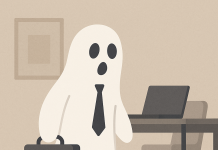Artificial intelligence (AI) tools like ChatGPT and Dall-E are revolutionizing the way we interact with technology. These cutting-edge tools have the potential to transform industries, improve our lives, and make the world a better place. However, there is one major obstacle standing in the way of their full potential: copyright laws.
Copyright laws were created to protect the rights of creators and owners of creative works, such as books, music, and films. But when it comes to AI tools, these laws are holding back progress. Here’s why:
First, AI tools like ChatGPT and Dall-E are not “creative works” in the traditional sense. They are not written or composed by humans. Instead, they are created by algorithms that learn from vast amounts of data. So, the idea that a single person or company can “own” the rights to an AI tool is absurd.
Second, copyright laws can stifle innovation. If companies have to pay hefty fees to use AI tools, they are less likely to invest in them. This can lead to a slowdown in the development of new AI technologies and a lack of progress in the field.
Third, copyright laws can also prevent the free flow of information. In a world where knowledge is power, it’s crucial that information is shared and accessible to as many people as possible. But if AI tools are protected by copyright laws, only those who can afford to pay for them will have access to them. This could lead to a digital divide, where only the wealthy have access to advanced technology.
So, what’s the solution? Shielding AI tools from copyright laws is the best way to ensure that they reach their full potential. This would allow for open access and unrestricted use of these technologies, leading to rapid innovation and progress in the field.
But some argue that if AI tools are not protected by copyright laws, there will be no incentive for companies to invest in their development. However, this is not the case. There are other ways to incentivize innovation, such as through patents or government grants.
AI tools like ChatGPT and Dall-E have the potential to change the world for the better. But to reach their full potential, they must be shielded from copyright laws. This will allow for open access and unrestricted use, leading to rapid innovation and progress in the field. So let’s not hold back these amazing technologies any longer, let them be free and accessible to all!




